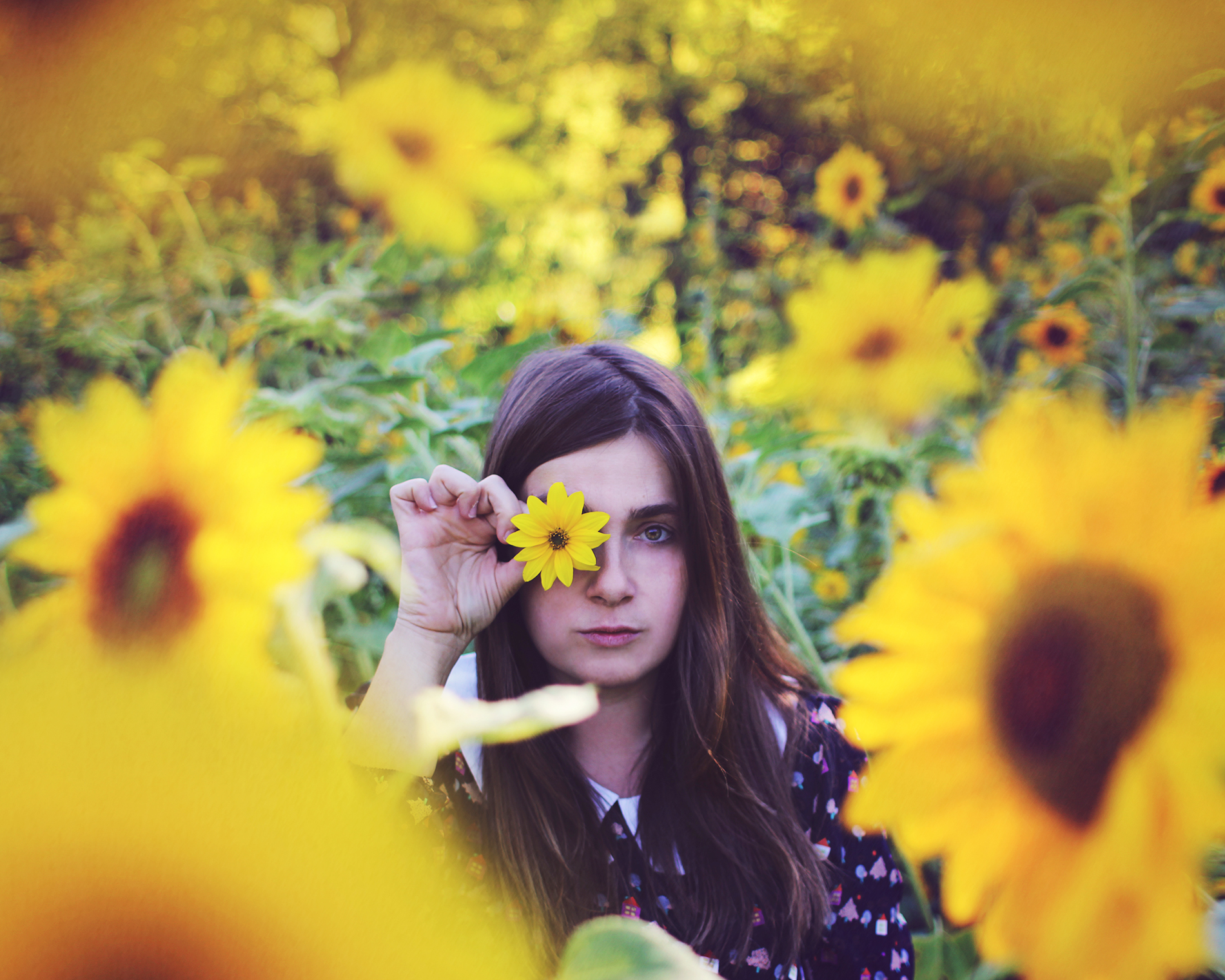
Social Media Is Bad for Artists (And We All Know It)
My artistic career didn’t exactly go as planned. I thought that by now I would have a large social media following and a thriving art business – you know, that nice little scenario we all daydream about.
Instead, I spent years feeling rather invisible on social media, trying to get my art seen, and, truth be told, failing quite spectacularly.
I’m sure you’ve stumbled upon those articles promising a foolproof path to social media success. It does sound enticing, doesn’t it? Thousands of people following your journey, eager to view, share, and purchase your creations. Like many artists, I tried following the guidelines – posting regularly, attempting to master reels, sharing stories, and using all the hashtags.
And in all honesty, I hated it. I felt lost in a game I didn’t want to play.
There is no doubt that social media can lead to success. But is it the only way? I no longer believe artists should invest their souls into Instagram, Facebook, Twitter, and Co.
Just because it worked for others doesn’t mean it is the best option for you.
At some point, I realized I needed to go a different way. And I did. (Hey, I guess I should thank social media because this entire blog and website stem from my profound frustration with how these platforms are designed. )
So, welcome to my rant. You can look forward to an extensive list of reasons why I view social media very critically. The working title for this article was ‘Why Social Media Sucks’, by the way.
Fair warning, this is a lengthy read. But there really are that many reasons why social media might be a somewhat bad idea for artists.
Why social media is bad for artists trying to get their work seen
Let’s start with the essential flaws Instagram & Co. have as platforms. The way they are set up makes it hard for small, independent artists to succeed.
Social media has become an (unpaid) full-time job
With increasing users, the requirements for being successful on social media as an artist are constantly rising, too. In the beginning, it may have been enough to just post your artwork.
Today, things have changed a little: Be online regularly, post religiously, interact with people, create stories, film and edit video content. Social media has basically become a full-time job, at least if you want to be seen.
Apart from YouTube, artists still have very limited options for getting paid for content creation.
Here are some questions for you to consider:
- Is all that work you put into social media paying off in any way?
- How many sales do you actually make through social media?
- What does your social media presence cost you? (time, energy, focus, missed out moments in real life, …)
Especially in business, always consider your return on investment and costs vs. benefits. And with all the investment social media is asking from you, it may not be returning enough to justify the effort.
Your content disappears
Social media is designed to be short-lived. And so your art, now called ‚content’, quickly becomes replaced by a new stream of information.
As artists, we want people to engage with our work, truly taking it in. But realistically, most people will simply scroll past, at most leaving a quick, insignificant like before they move on to the next thing.
Due to algorithms, your chances of reaching the feed of your followers are low in the first place. And depending on the platform, your content is gone within minutes or days.
IT company Mamsys researched the life span of content. This is for how long your posts remain visible on average before they disappear:
| Platform | Content lifespan |
| 18 minutes | |
| 5 hours | |
| 21 hours | |
| 24 hours | |
| 4 months | |
| Blog posts | 2 years |
Worst of all, most content on social media is not searchable.
What does that mean? If you create a blog post or upload a video to YouTube, people can still find these years later through search engines. That kind of content is valuable for a long time, not only for a couple of hours, and will keep attracting people to your page.
On platforms like Instagram, however, your content simply disappears. Even if you use hashtags, it will only show up for a very short-lived time in the hashtag feed.
Effectively, you disappear
Just like your content, you are only one of the millions of artists on social media. You and your art disappear in a crowd of other people. (By the way, I am not writing this article to depress you, I’m just saying social media is really not exactly the most appreciative place for sharing art).
Say someone follows several artists. As they scroll through their feed, they consume all those different artworks as one, without taking time to get to know the individual art and artist.
You are simply feeding the big stream of free entertainment that social apps provide.
The little time of interaction stops people from truly connecting with your art. It is a whole different story if they spend twenty minutes watching a video of yours or reading a carefully crafted blog post. Especially if you do not spend all day posting on social media, most people will quickly forget who you are. Out of sight, out of mind.
As human beings, being forgotten and invisible is one of the things that scare us most – and as artists, we literally live from the attention our art gets. So signing up to a platform that constantly lets us disappear into nothingness seems like a terrible idea, doesn’t it?
A lot of followers does not mean you will sell more art
When I started my journey on Instagram, I thought it would be fairly easy to get more followers, if only I made nice art. And with a lot of followers, I thought, it would be easy to sell my art.
But the truth is, only a tiny percentage of your social media followers will be actually willing to pay for your art. For most, you are only creating content for free. That does not mean they don’t appreciate your art, of course. But from a business standpoint, you might want to reconsider the amount of energy you put into social media.
I have studied a lot of artists’ social media profiles and noticed that there are many accounts out there with large numbers of followers – but if you check their Etsy stores, they barely have any sales.
I launched my own print shop with around 2,000 followers. Despite hosting a giveaway, announcing the shop very visibly and offering discounts, I only made 1 sale through social media. ONE. The rest came, in the course of time, through my website.
If you truly want to convert your social media followers into paying customers, having a link to a shop somewhere in your profile is not enough.
It takes a lot of work. You need to actively market your products and have a marketing funnel strategy ready, otherwise, the incentive to buy won’t be strong enough to actually make money with your art through social media.
You are dependent on a platform
Never, I repeat, never place all your bets on a single platform. Social media platforms can be similarly short-lived as their content.
Say all your success as an artist depends on Instagram. When that platform is gone, so are you.
And on the next platform, you will have to start all over.
In a way, it happened to me, too. I started out having some small successes as a photographer on Flickr back in the day. But when people started switching to Facebook and then Instagram, I joined the party too late – and never managed to achieve similar follower numbers ever again.

So I recommend to anyone having your efforts spread out. Have a website that will outlast any platform and start building an email list from early on.
Only this way you can take your subscribers with you, whatever platform comes next.
Will you support my journey away from social media and become part of my community?
That would be pretty amazing. Thanks, cool cat.
It is hard to start social media as an artist now
Social media success comes easier to early adopters. The less competition there is on a new platform, the more will good work stand out and attract followers.
Today, everybody wants their share of the seemingly easy social media success – so it becomes harder and harder to actually achieve it, with algorithms and competition working against you.
It is still possible to make it, of course, but you’ll need a bulletproof strategy, have to constantly keep up with the latest trends, and possibly pay for advertisement.
Maybe some people thrive on this, but to me, it feels exhausting.
Instagram is the one who profits, not you
In the end, it is the social media platform that profits, not the artist. As a side note, you don’t even properly own your content when uploading your work there.
Being a social media user, you play into the service they are providing: Free entertainment. In the end, Instagram is not helping you to grow, quite the opposite. The work you put into it is only helping Instagram to grow.
Julia Bausenhart, an artist who quit social media, explains on her blog how the time you waste on social media is simply their business model. The more hours you spend on the platform, the more money they make through ad revenue.
And that’s exactly the reason why these platforms are deliberately engineered to be addictive.
It’s clever, really. But not for you, only for the companies running those platforms (which nowadays are mostly all the same anyway, namely Meta).
How social media harms your mental health
Apart from social media being bad for you as an artist, it is widely known that the effects reach deeper. Even though these platforms are supposedly social and enriching, they can have quite the opposite effect and severely affect our mental health.
Comparing yourself to other people
Social media is a highlight reel. Unconsciously, we often compare ourselves to what other people post about their lives. And as artists, we tend to judge our own art, comparing it to the masterpieces other people create.
There is definitely a movement of people using social media more honestly, admitting their struggles, which I do love – but even that still can lead to comparison. Am I as authentic as them? Do I have a positive social impact or does my vulnerability look like whining?
It is hard to be immune to comparison since it literally lies in our nature. Letting go of comparison can be practiced of course, but requires a very mindful approach to social media – which is difficult because it is literally designed to be addictive.
And the more you consume what other people are doing, the more time you invest into other people’s lives instead of the one that matters – your own.
Say goodbye to your attention span
Social media content is becoming even more short-lived nowadays, prioritizing second-long videos as quick entertainment. People are pushed to quickly consume a lot of information, but not in-depth, only a flood of shorts.
Our attention span is clearly suffering, as proven in many studies. In fact, things are getting so bad that our attention span is nowadays worse than the famous not-so-brainy goldfish, as this article states. Our attention span is, thanks to our digital lifestyle, down to SECONDS.
Congratulations, we are all becoming goldfish.
By using fast-paced social media, we are destroying our attention span even more. Instead of reading in-depth articles and focusing on a movie, we mindlessly switch from one piece of content to the next.
Your work is judged through numbers
What matters on social media? It is one big numbers game. As an artist, you are faced with the reality of having your work judged based on how many followers and likes you have.
The quality of your work does not seem to be what matters anymore.
Unfortunately, higher numbers signal success and expertise, even if those numbers might be all fake and completely irrelevant to a person’s actual qualifications.
It is hard to not feel frustrated about your work being rated in the realms of social media. With numbered ratings for art widely on display, the entire art market is changing. But when we let meaningless numbers impact our judgment, there is a problem.
Social media can be outright dangerous for your mental health
Social media can feel exhausting. It is a constant race to keep up. Welcome to the world of FOMO, anxiety, competition, and comparison.
Because platforms like Facebook and Instagram are designed to be addictive, you may find yourself checking them way more often than you’d like to. Social media’s entire business concept relies on getting as much of your attention as possible – that’s the price you pay for these ‘free’ platforms.
Consider how social media makes you feel. How often do you engage in truly enriching interactions on social media? And how often do you feel stressed and desperate to keep up?
The mental health effects of social are plenty. Studies have shown that high social media usage increases feelings of isolation, depression, and anxiety. Comparison and showmanship go a long way, in some cases even resulting in bullying, self-harm, and mental disorders.
In light of these severe mental health consequences, saying social media is harmless entertainment is pure hypocrisy. We all need to be aware of and actively protect ourselves and others from the hazards of social media.
How social media makes your art worse
Now that you have said goodbye to your free time and mental health, do you want me to get into how else social media is bad for you as an artist? Your art might be doing better without it, for a couple of reasons.
The curse of pressure
Social media forces you to be constantly creating – after all, your posting schedule needs to be filled and maintained with new content at all times.
So the pressure to increase the output might lead you to create more quickly, in haste. For some, a little bit of pressure to create regularly might increase their productivity, but in the long run, you might run out of energy.
When you feel pressured to constantly post, your art might lose detail and precision – exactly the little bit of extra love that makes an artwork stand out.
If you are only creating to keep up with social media, your work can lose authenticity and meaning. Is this truly why you are creating? I believe your art has a deeper message. Its purpose is not to keep the quick-burning engine of social media running.
Social media interrupts the workflow
Many of the social apps are constant distractions. Notifications constantly remind you to never forget about what is happening in your little digital corner. Even if you have them turned off like me, you might find yourself checking every other minute if there is some more dopamine available for you, opening the app mindlessly, without even noticing.
Also, the creation of content for social media itself can be very disruptive to your workflow. If you need to stop every couple of minutes to take photos of the process, screen-record your editing, take behind-the-scenes videos – how does that affect your artistic process?
One of the most beautiful things about making art is that special flow state while creating. Social media, however, disrupts exactly that, which can easily result in higher levels of dissatisfaction and a less peaceful experience while making art.
You are wasting the time you could use for making art
Social media seems like it is not so time-consuming but it is. Let me just quickly post this on social media? What a joke. I am sure you are familiar with how long it really takes to prepare a little piece of content. Photo editing, writing the perfect caption, researching hashtags, interacting with comments, …
And, apart from the creation of content itself, social media is very inviting to get a little bit lost online. After posting, we are checking for likes, we are scrolling infinitely, coming back way too frequently because our brain hopes for the next dopamine hit.
Your time is precious. As an artist, the time you lose online could be used to create your next masterpiece. Making art should always be your main focus. Everything else comes after.
My precept as an artist is: Create more than you consume.
Social media is the end of unique art and inspiration
When reaching for social media, what we hope for is inspiration. And I can’t deny that I have found so much beautiful inspiration through the internet, yet it has to be handled with caution.
Today, we are facing complete overconsumption of art. As soon as you open Instagram, you are flooded with visual impressions – more than we can safely process. As a result, we encounter overstimulation instead of inspiration.
And I have observed another effect of the increasing popularity of sharing images through social media. Whether it’s in photography or illustration, much of the art today feels pretty much the same.
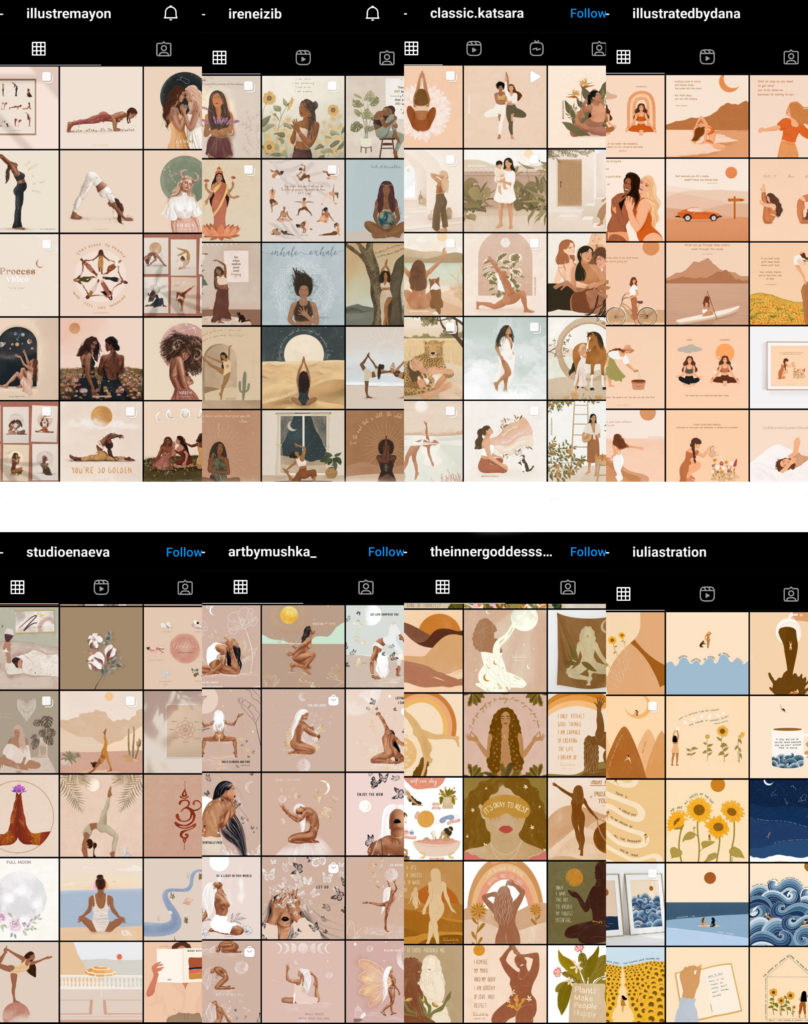
Many artists simply seem to emulate what’s popular – resulting in barely unique feeds. If we do not take time to go inwards and express what’s inside of us, but simply copy what we see, the unique factor in making art gets completely lost.
Art is always a reinvention of what has been done before and there are trends, of course. But the influence of social media can – even unconsciously – lead us to create art that is less unique simply because we create what is popular, not what comes from our soul.
And what a sad world it would be, losing real inspiration and uniqueness while drowning in a crowd of clones.
Why you might still consider having social media
As I think about all the points listed above and how bad social media really is for artists, my urge to simply get rid of it all is quite strong. However, there are a few reasons why you might still consider staying on social media.
The things I personally like about social media are:
Accessibility
The basic principles of social media are good ones. It is a democratic approach to sharing opinions and art, accessible to anyone with a smartphone around the world – at no point in history have we had equal opportunities like that. In theory, anyone can make it on social media and it could be a diverse platform. However, algorithms do affect what we consume. We do not get to see the true variety of what is out there since our personal social media bubble is perfectly tailored to our assumed liking.
Connection
The ‚social’ in social media is still there, somehow, even though it may be hard to see. Social platforms do enable global collaboration between artists, making beautiful connections with like-minded people, and keeping in touch with friends from far away. Personally, I have met many people through social platforms that I would have never gotten to know otherwise and it is a beautiful thing having a diverse network of people thanks to the internet.
Inspiration
When used wisely, social media can provide a lot of inspiration. If we stay away from the endless overconsumption of art and instead use social media mindfully, with a more conscious and time-limited approach, we can find a lot of beautiful things. What we see shared on social media can lead us to new approaches in our own creative process. It is not easy to resist the addictive qualities of Instagram and Facebook, but it can be worth trying to work on a different approach to social media.
Social change
What I personally value about social media is its strong contribution to social change. I love following people who are passionate about making the world a better place, and there are things I would have never learned otherwise. Social media definitely changed the way I think many times. It is great that people use those platforms to speak up about social taboos, encourage others to care for the planet, and show us how we can embrace ourselves fully.
How bad is social media really for artists? My personal conclusion.
Ahh, the big dilemma. What to do now? I dislike social media in a LOT of ways (I guess the novel above proved that quite impressively), but I also appreciate some aspects of it.
Two years after writing this article, I have significantly reduced the time I spend on social media. With Instagram being my biggest downfall, I set myself strict limitations on how I use the platform and initiated Social Sundays.
If you do use social media, use it consciously. Take time to really look at what you see, and interact with others genuinely. Build self-awareness and question why and how you use social media as much as you can.
And I always aim to put creating for myself first. Only then do I feel more light-hearted about consuming what other people are doing and can genuinely cheer for them.
Would I judge social media differently – more positively – if my art had really blown up and I was what they call a ‘successful’ artist on social media? If I was less frustrated? Possibly! But I still think it would take a toll on me. Many of the negative effects are universal, no matter how many followers you have.
In any case, I would never want to base an art business on social media only. It can be a contributing factor, but I urge all artists to consider whether all the effort and downsides are really worth it. My personal answer is no.
P.S.: If you’re curious about alternative ways to succeed as an artist, you might want to read this blog post next.

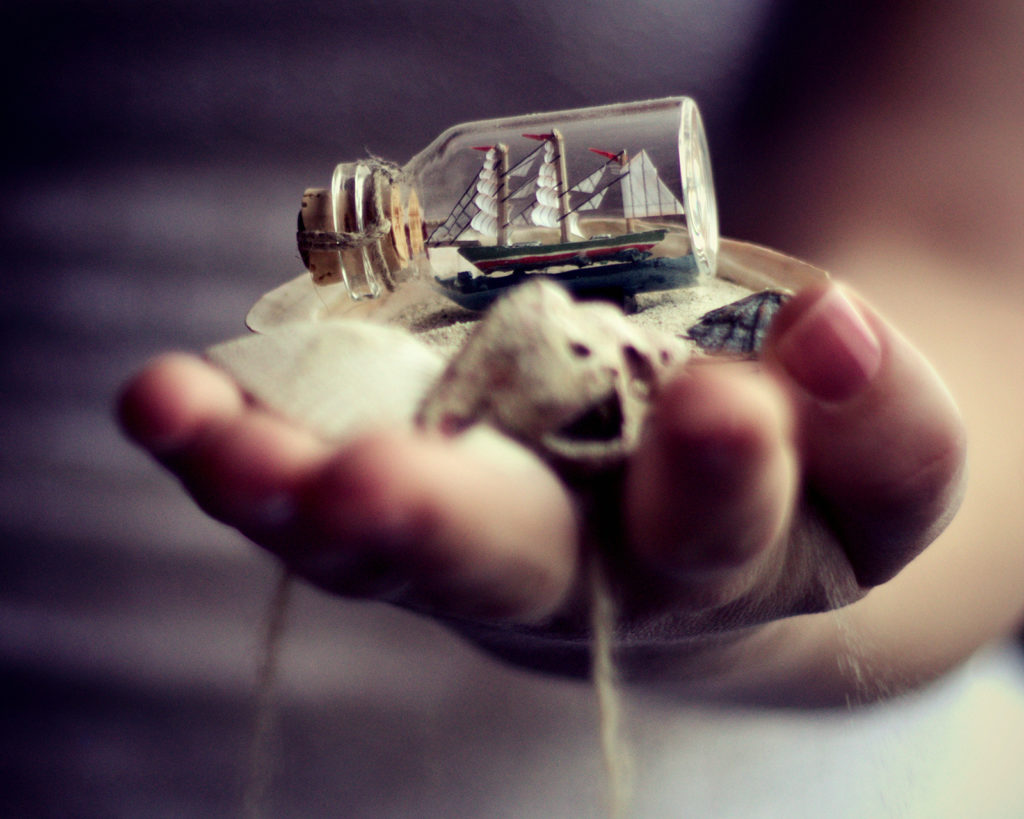
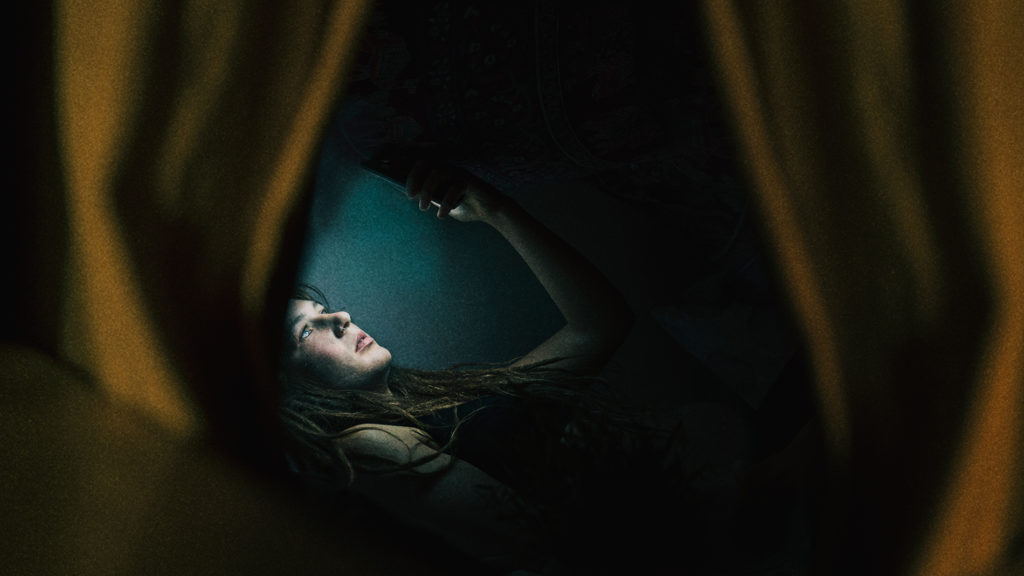
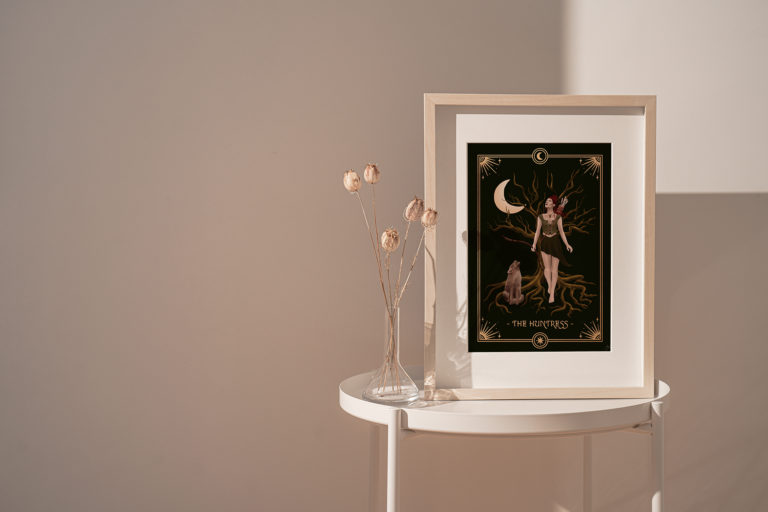
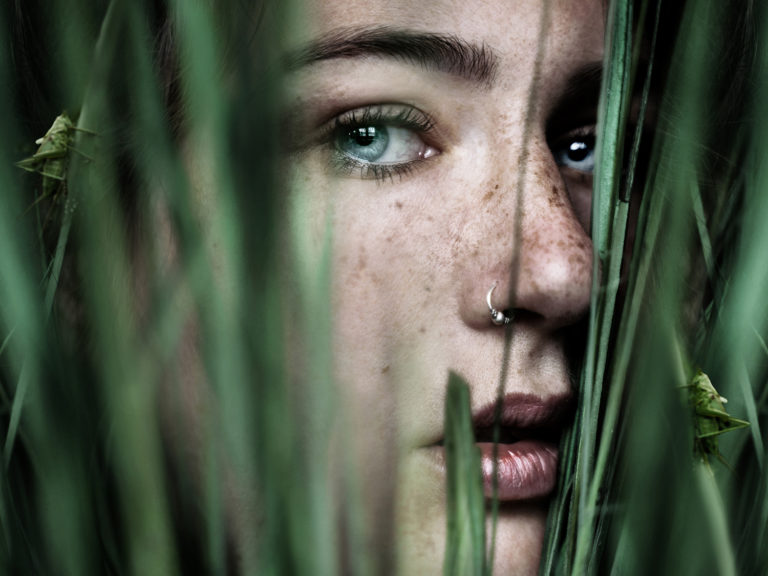
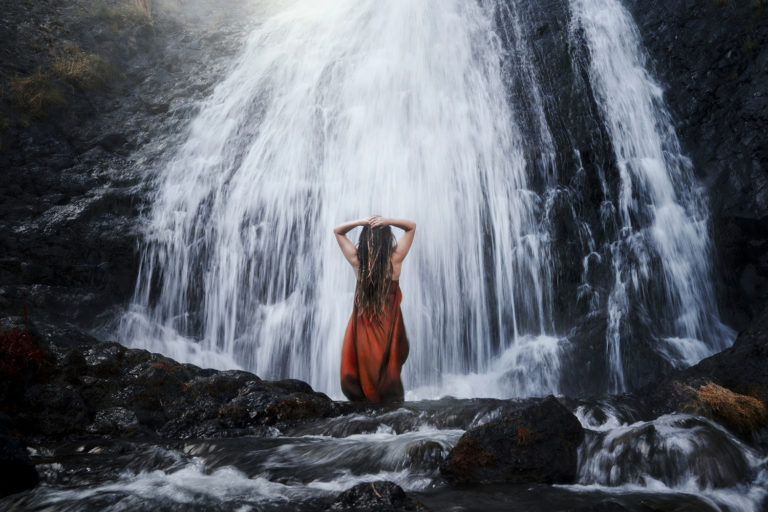
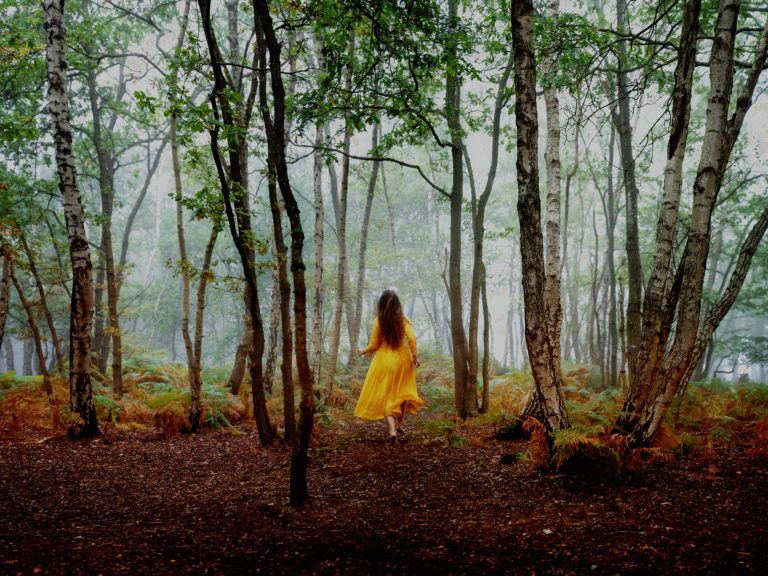
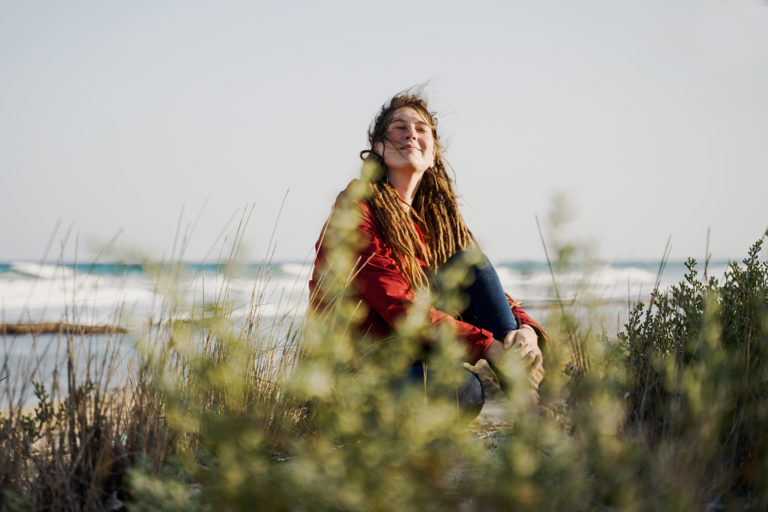
Great blog post – thank you. You’ve articulated exactly how I feel and what I was thinking. Social media has become a huge weight on my shoulders and the pursuit of engagement, likes and followers has crushed my creativity. Your article helped my thinking along. I’m going to spend less time on socials, give it all a lower priority and make more art. Thank you again 🙏
Hi Lynn, I’m really happy to hear this was helpful for you! Thank you! You have lovely work, by the way, takes my imagination straight to cozy little villages in the countryside 🙂
My major problems with social media is the owners who run them, and they are not good guys in any sort. They are billionaire criminals who only care about is making profits. Social media platforms such as Instagram, Twitter, Youtube, and Facebook are not regulated by the US Government because the US Government are working with them to go against anyone who opposes the establishment. Our personal information is being shared to third party companies and NSA. There was an article I’ve read how Mark Zuckerberg used his platforms to influence elections in foreign countries to make sure voters do not vote for democratically candidates! That should have been illegal! What else is illegal in how Facebook and Instagram encouraged their users to post hate comments about Russian citizens over in what’s going on in Ukraine. That is considered a hate crime. Let’s not forget how the US Government, the media companies, and social media companies agreed to upper the censorship.
Another thing, there are still hate groups being present on these platforms. When it comes to fake news on social media, majority of them are coming from right-wing sources, mainstream media outlets, and the western politicians themselves. The algorithm never touches them. Even it is pointless to report them for “violating community standards.” When it comes to true voices who are speaking the truth, they either get shadowbanned, their posts get taken down or they get temporarily or permanently banned from these platforms. Sadly, there is no true freedom of expression on social media. The algorithm dictates what people can and cannot see which it hurts so many upcoming artists, true voices, small businesses and others who are not well known, has a billion dollar company, etc. When it comes to posting artwork; it is much easy for someone to tell people to post high quality pictures or videos. However, a Hollywood celebrity can post the crappiest photo and still get a free pass by the algorithm. I can go on and on with this topic and the things I’ve learned. I find social media sad in all levels.
Thank you for touching upon those issues! Certainly, social media is problematic on many levels. That’s one of the reasons I created this website, to become more independent from those platforms – currently, I’m also drastically reducing the time & energy spent on Instagram and it feels much better already.
I don’t really understand why you distinguish YouTube from other platforms. It is still a social media, with all the pitfalls of the others–and it is not unique as a website where you can find videos that were uploaded years prior.
YouTube resembles a search engine much more than many other social media platforms, so for creators, I think it holds more long-term value. People still come across YouTube videos from X years ago while an Instagram or Facebook post this old is long gone and will barely ever surface through search functions.
Of course, YouTube is indeed still social media and many people spend too many hours on it. Personally, however, I don’t find it as addictive as other platforms and as mentioned, I think it can benefit you in building an audience more than other platforms. But as with anything, moderation is key and I’d always focus on creating over consuming 🙂
Thank you for sharing your thoughts on this topic, which is painfully relevant these days.
I found it very comforting to see a fellow artist who struggles with the exact same issues, and who feels stuck in this conundrum. I’ve read several posts on your site today, and I’m very grateful for how much knowledge and advice you provide on here. In another article you mentioned that creating a blog wasn’t exactly on your list at first, but you still ended up doing it, and I think that’s lovely to see. On that note, I actually think social media has a way of impeding our natural urges to try new things, like making a blog or creating a website, because it’s so easy to just stay on one or two platforms that are very convenient, but don’t provide much of anything else. Personally I hope we’ll see a shift soon, and that people will grow tired of social media and look to spend their online time elsewhere, and to preferably minimize their online presence altogether. I’m trying to be hopeful, many people I know have started expressing these thoughts, as have I myself.
For me the main problem with social media is not even the time I spend on it, or even the time I spend actively thinking about it, but rather the way just being on there at all seems to nullify my peace of mind. I don’t struggle in the least with staying away from it, and can easily post something and immediately log off and not check in for weeks, and yet I still struggle with the same stress. I think that truly shows just how detrimental it is. Self-control doesn’t matter, because you’re still transforming your art into content, and you’re still putting yourself out there as a product, much more so than you’d do on a website or by being featured in a magazine or such. It’s just so compressed and soulless. I used to be an avid supporter of social media when I was a teenager, but lately I’ve just started seeing the extent of the problem. I genuinely think you need to disconnect entirely to regain true mindfullness. The last weeks I’ve been posting just a few times, and I mean maybe 2 posts over a month and a half, and yet the serenity I’d gained over the summer from not using social media, quickly vanished. It becomes impossible to focus on my real life, because I’m stuck in this liminal place, and also because I know just how fantastic it is to just log off entirely.
These platforms really are not made for us as users, not truly, and nothing about their design is meant to evoke a positive experience, apart from the dopamine necessary to stay on the platform. They’re not meant to allow us to make meaningful connections or to be inspired, all of that is just purely by accident. And as you said, on social media our art is reduced to a quick jolt of dopamine, and everything that makes art into art is meticulously removed from the context. I’ve started to feel that it’s more respectful towards myself to only show my art to my friends, than to plaster it onto people’s social media feeds. It’s not even the fault of the individual, it’s just impossible to actually appreciate art when it exists as a dot in a feed. It was when I myself realized that I couldn’t really take in the art in my feed, that I truly wanted to leave social media.
This turned into a very lengthy comment, but I wanted to provide some thoughts as thanks to your great blog post. Thank you for writing about this, and thank you for being hopeful and positive. I’m sure we, as artists, will find a way forward.
All the best!
– Alexander
Hi Alexander, I very much appreciate this lengthy comment of yours 🙂 thank you so much for sharing your thoughts on this topic! I definitely think there are a lot of people like you and me out there who are truly frustrated with this whole social media thing.
It seems like a lot of online platforms work great until they become too big & the companies behind them focus too much on the money-making. Happened with facebook, happened with instagram… in the end, users get frustrated because all they see is ads and artists no longer get their work out their without paying for said ads. I wonder if this will give rise to a new platform eventually?
Like you say, the psychological effects of social media are quite extreme. For the past months, I’ve been experimenting with a new way of using social media – I only use Instagram one day per week (on Sundays, which is why I call it Social Sundays). I quite like this approach actually because it gives me peace of mind for the rest of the week. I’m currently writing a blog post on this to share my experiences – feel free to subscribe to be notified when it goes online!
And I love what you say about sharing your art with your friends, it is so much more meaningful to connect this way! I’ve also recently had some beautiful talks with people in person about my art and it makes such a difference. It sounds like leaving social media altogether might be the right decision for you – and I’m sure you will find alternative ways to share your art if that’s what you want to do!
Oh, I’m happy to hear you also enjoyed reading my other blog posts! Wishing you all the best as well & thank you again for your comment 🙂
Anna
Brilliant writing. I’ve been on Instagram only a couple of months and was already considering leaving for pretty much the same reasons you write about. I agree with your thoughts about YouTube; it doesn’t “feel” like Instagram or Facebook to me. Thanks for this great article.
Thank you, Rich! I’m happy to hear you enjoyed the read and I hope it helped you to find more clarity on how you want to use social media (or not).
Have a lovely day 🙂 Anna
Thank you for the valuable thoughts.
You’re welcome, Viktor! 🙂
Hi Anna, I stumbled upon this excellent article while searching for a new template website. I’ve been making a career change from comics and graphic novels to fine art, and I’ve been away from my social media sites for over 2 years. I was starting to feel like I should get them going again to boost my new career, but your article reminded me why I struggled so much to maintain any sort of enthusiasm to post to them. I’m a recluse in the first place, and seeing all that frenetic hype just drives me nuts and wastes my time, but it had seemed so necessary until I got away for the two years. But I have a new body of fine art work now, and I want and need to sell my art.
This brings me to my request for maybe a brief opinion if you have one, which I was hoping to see more of in your article…what are the alternatives to social media these days as an artist trying to make a living from traditional art work? Does anyone know anymore?
I’m thinking of trying the old school route and sell through brick and mortar galleries, then post and try to sell my art on art shopping sites, and possibly try meeting people face to face at art shows. I did this at comic cons for years, having a table in the Artist Alley at the shows and it did help my career some back then, but those too have changed –they shouldn’t even be called comic cons anymore, just entertainment cons.
Anyway, if anyone has an opinion of how to manage an art career these days (not in concept art or the entertainment business) but in painting fine art, I’d love to hear it!
Best wishes for 2023!
Felipe
Hi Felipe, thank you for your comment! It’s great you’ve been getting into creating fine art and are now looking for ways to sell it outside of social media.
For traditional work, I may not be the best person to give you advice but here is what I heard/read from A LOT of other artists: Selling face-to-face is still the best way to sell art. Many artists have great success at art fairs (with either prints or originals). For me, selling in person was unfortunately never an option since I travel permanently but it might be a perfect fit for you, however! It seems like you’ve been disappointed by the latest comic cons but maybe there are other kinds of art shows where your work may fit? Especially if you do not want to be using social media (much), art shows might be your best shot at getting your work in front of a new audience.
You can also try submitting your work to magazines and see if you can get it published. Try to think about where your audience hangs out and spread the word there. Getting your work seen is a lot of work in any case but I think it is worth doing so in ways that don’t deplete you 🙂 Good luck to you!
Thank you so much for this! Funny, my last blog post is about Instagram. However, you have hit the nail on the head. I almost decided to ditch everything and then thought, wait a minute… FB and Instagram should really just be tools. If I use them that way then I can drive the bus and not the other way around. FB, I only use to keep in touch with friends and family. I post finished work only, and I’m a textile artist so my work takes time and can’t be rushed. With Instagram now, I use it as a gallery for finished work only. And I use their story feature to add a link to my blog (you can’t do that with Facebook). I check both once a day, in the morning, for no more than 15 min. So far this is working for me.
Again, thank you so much for writing this article. I really needed it.
That is amazing! I’m really happy you found a way of using social media that works for you. Thank you for sharing, hope this can inspire others to become more mindful about their social media use, too. Wishing you all the best & that many beautiful people may find your art!
You can’t even imagine how grateful I am to you for writing this. In real life I had my first gallery exhibition when I was 20, went on to have several more where my work systematically sold well, and had my art shown in two museums, and yet instagram makes me feel like a total failure. Most of what you wrote here rings very true to me, especially about the exploitative nature of it – it’s so much volunteer work! – and meaninglessness of numbers – which makes it also humiliating when you work 30+ hours on your art and it’s not even shown to your followers and you see massive accounts built with bots or stolen content. It’s also uniformizing and it constrained my expression to the techniques that are valorized by the algorithm (and for what? A “loser” sticker on my portfolio…). It infuriates me to see how it punishes the artists who do novel, original work among my friends. I stopped using facebook a while ago and I’ve been wondering since a few months why I was still on instagram whereas it’s the one I dislike the most. The answer is: because I was told I had to as a freelance artist.
Hi Anna,
Thanks for writing your article here, this entire post is spot on. I am a musical artist and event producer who reached 75K followers on Facebook, only to have our “organic reach” completely wiped out. Now unless we “Boost” our posts no one sees them. I have spent the last two years building a new type of social media site without likes or ads, built to support artists and build community. Would love to share your article on it when we go live soon. Really enjoyed reading this!
Hi Emilio! I can fully understand your struggle – but hey, how great you actually started acting and built the platform you wished to see! PLease do send me an email when it goes live, I’d love to check it out 🙂
Gosh Anna, this article felt like written with my own hands! Free content creation for a plattform that forces artists to become entertainers. 😖
Personally, I don’t want to provide insights into any aspect of my work space, my private life and my creative process. I just want to share my art and my writings. Puh – not a good idea in our “video content era”!
Back in the days when I still had the ambition to use Insta’s algorythm and certain growth strategies, I was additionally facing the problem that the algorythm doesn’t like “variety” regarding the hashtags. But that’s what I need, because I’m a multidisciplinary artist & writer with a broad spectrum of topics. 🤦🏻♀️
What I also realized is that social media creates a wrong perception about the profession of an artist. On IG, art is mainly promoted as a “cool, easy- going lifestyle thing”. People don’t want to hear/read about the challenging aspects of being an artist. But I don’t want to fake my life just to gain more popularity.
Additional pain in the a..: The tons of people who want to interact/make “friends” with artists. Foreign people who want to be on your email list for studio visits (Assuming every artist has a huge cool studio… 🙄), people sending you images of their hobby paintings asking you for advice, bots/scammers, and so on. For me, IG definitely became severely damaging for my health. A time & energy consuming monster that didn’t bring me any benefits in the past 3 years. For some, it might still work well – depending on their art and their attitude towards social media in general.
Hi Rebecca, thank you for sharing your thoughts! I can totally relate to the multidisciplinary problem – as someone who photographs, illustrates, travels, hikes, and has a dozen of other passions, it’s hard to represent that in a way that would be favored by any algorithm. Even here on my website it was hard to represent all of that haha, but at least it’s my own platform where I don’t have to shove myself into one tiny niche, posting the same aesthetic over and over again.
And yes, IG can definitely create a wrong image about being an artist. I’d say the majority of artists out there aren’t faking anything but I get how it can feel like that. Personally, I also just wouldn’t want to record every step of my creation process, that already sounds incredibly stressful. But kudos to those who enjoy doing that and make it work for themselves.
The latter I actually haven’t encountered much but I’m very sorry to hear people are reaching out to you for the wrong kind of reasons!
How do you feel like you will go about sharing your art in the future? Would love to hear about your approach. In any case, wishing you all the best on your journey!! 🙂
I stumbled onto your blog quite by accident, but it resonated immediately. For clarity, I am not a visual artist, but a musical one (composer, performer, arranger). Social media is a daily practice in frustration and disappointment if you are looking for it to promote, further and sell your art or music. Your reasons seemed pretty spot on, but here are some I have found that pertain to original music on social media.
1. Few are impressed by original music.
And that means no matter how good it is. No matter how compelling, beautiful, interest grabbing, innovative, artistically cutting edge it is, it just gets a yawn. 95% of your crowd on SM only knows a couple of the latest pop stars, and that’s all they care to know. Your originality, especially in rare or “niche” genres (neo-classical, avant guard etc) just couldn’t be of less interest to them.
2. The ones who are impressed by original music resent your bragging
With this crowd, the broadcast of your original work is received as a shot over their bow (the good ship EGO) or an attempt to make them look lesser than or not as cool and desirable as you are. Yes, competition can enter into it, even there there are mountains of opportunities every day for all of us. You will be seen as a threat. It’s like you can’t win, right?
3. Very very few can be bothered to hit PLAY on that Youtube or Streaming link
Yes, it’s just a quick click on the big white arrow to play the song, but be assured that the vast majority cannot even be bothered with that. Now for some, it might be practical because they are on their phones and not in a place where they can give your music a good listen. OK, I’ll grant that. But others its just plain lazy. Added headache, statistics show that even those who do hit play only listen to, on average, spend no more than 30 seconds listening to a new piece. 30 fucking seconds. On that 9 minute concerto you just spent six months writing.
4. You are overestimating the taste and attention span of your audience
Sorry to say this but the bulk of your audience’s musical knowledge and experience tops out at a Taylor Swift concert. Doing anything else and it will sail completely over their heads, they will get bored or feel insulted like you are purposely trying to make them look oafish, and off they go to that cool pizza recipe on a friends TL.
Positive aspects? There are a couple. When you DO connect with people who actually listen to your work, they rarely come back with “man do you suck!” In fact you stand a higher chance than normal of an album or sheet music sale, and a permanent follower. You even stand a good chance getting another patron (vital to us in the orchestral arts). So there is that.
The take away (I hate that term already and it hasn’t been around that long) is that you should very sparingly use SM, and don’t let it take up your day. Keep it light and folksy, maybe drop a little about your music and move on. Do NOT rely on it to land your next big debut or chunk of 10k album sales. You may hate me for this now, but you will thank me later.
Thank you so much for sharing from a music artist’s perspective! I think people from all creative fields are experiencing similar struggles when it comes to social media.
One of the main issues is certainly that people come to social media to consume content for entertainment, especially now with random reel/tik tok feeds – you don’t really care about who that content is coming from. So ‘real fans’ who actually will engage with your art/music regularly and truly know what you do are rare (and it makes sense, there is just too much content to consume and we only have limited attention).
But like you say in the end, social media can be a great tool to reach those few people who really do care about your work. It can be frustrating to know that the majority of people will only look at your picture for less than a second or listen to your new piece for a few seconds before they jump to the next thing. But as an artist, you can’t please everyone, I think that’s important to remember. We often create for very, very few people – but within those few, we have a chance to truly move someone.
And let’s not forget, often people watch silently on social media. You may not even know how many lives you’ve touched. I’ve often felt like it’s pointless to share my work at all but I believe someone out there cares. So to anyone who feels called to create I’d say keep creating and keep sharing. Just for the sake of it.
And like you say, keeping it light and not focusing on the numbers or expecting too much is definitely the best approach 🙂 thank you for your thoughts and all the best for your musical endeavors!
Seriously I also feel the same…. Actually social media now a day seems like people are only rushing and posting their art to increase their followers only…… even I also think that art is the only thing which shows your thoughts as what you are feeling at that time as it is an inner creative work…. And people now a days are only focusing on materialistic happiness not on the intrinsic happiness… thank you for your post
Hi Isha,
yes, there’s a lot of perceived pressure to be posting constantly – and I wonder how many people are only playing the social media game because they feel like they have to in order to be successful with their art.
I do think people still do care about deeper things and are looking for meaning beyond materialism but social media platforms are definitely not designed to fulfill that need – they superficially promise connection but actually, are mostly platforms designed to generate ad income and keep our eyes locked on the screen.
So finally I manged to get my painting at the top of an instagram page. Yeah it will get seen. Then plenty of other new posts push mine down. Fair do’s. But at end of day my post has had zero likes, followers. Everyone else has had hundreds. Is my art that bad ?? really ?? Surely not that bad. But hang on it went to an exhibition and won a prize. What’s going on ?? Do I jump off the pier as I thought of earlier. I need to bring the pennies in… quick…very quick… Ya know what…I will keep painting as I always have. No matter what the cost. I believe in my paintings. It’s my life. Never liked social media in the first place. Hated it in fact.
Hi Robert, thank you for your comment. I think it’s really important when creating art to not rely on external validation. No number of likes or even awards can tell if your art is “good”, “meaningful”, “skilled”, or whatever other labels we like to use. As you say, the best thing to do is keep creating for the sake of it. You enjoying the process, that’s what matters. All else is just a bonus but it shouldn’t be what makes (or takes) our confidence in our art.
All the best
Anna
Greetings:
As a writer, I have been struggling with whether Instagram and Twitter are worth the time and effort. I use my own black and white photography and occasionally graphic art to entice viewers to visit my website. My goal is name recognition, carving out a niche, not immediate sales as such. There has been an upswing in visits, but not a stampede, a trickle. A provocative post = a few new visits, and that’s it. I just can’t see that it’s worth the time and trouble. I’m looking for another way.
Thank you for thinking critically about these issues (rather than just rah-rah-rahing the general assumptions) and for explaining so eloquently the situation.
Best wishes,
Carmine
As someone who’s been working on building a new online art platform for the past year and a half, this post has been a little sobering for me. I wonder if you think it’s possible to address the issues with Instagram and the like with something new. I’d love to get your thoughts if it’s something that interests you, feel free to shoot me an email, Anna.
Hi Dan, I think a lot of people are longing for a new platform! However, most attempts I’ve seen over the past few years haven’t really taken off. And I believe funding is one of the core issues – people basically want everything online for free, but to make it free, the platform usually ends up having ads and from there, things go down a slippery slope… the attention economy isn’t doing anyone any good except for the people profiting from it. Algorithms are also tricky – with the amount of information being uploaded, a chronological feed in a big social network barely makes sense anymore, yet algorithms do also swallow a lot of work that would be worth being seen. So… I don’t have the answer how the future of social media could look like & if there is any way to create a healthy version of what we use today, actually serving the people who use it. But maybe you do? 🙂 wishing you all the best with your project!